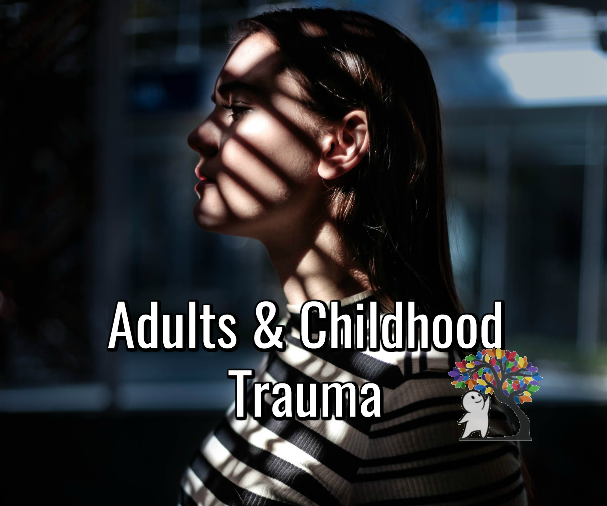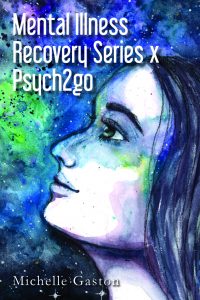9 Unhealthy Behaviors Adults Have After Going Through Childhood Trauma

Trauma is difficult to deal with. Whether its emotional, mental, physical or sexual. You go through life believing you have overcome it. Only to exhibit unhealthy behaviors as an adult. If you are not careful you will stick to these behaviors for the rest of your life unless you confront the past head on. By allowing yourself to feel. Express your emotions, process it, and then let it go. It’s okay to look back, but don’t stay there. The following is a list of behaviors adults have after going through childhood trauma:
-

Picture by: Claudia Soraya Becoming overwhelmed by fear: You believe playing it safely is the best option. Convincing yourself with lies. The problem here is that you’re prevent yourself from living fully and pursuing your dreams.
- Becoming passive-aggressive: Trauma has taught you to defend yourself by going around the problem instead of confronting it. You repress your emotions and anger. In time all those bottled up emotions start to slowly come out. Some of you may think you are avoiding negativity. When in fact you are only hurting yourself in the long run.
- Overprotecting yourself: You believe that everyone in your life will betray you one way or another. This prevents you from having fulfilling relationships. Starving yourself from true connection. Just because you have been hurt in the past by people. Doesn’t mean everyone has ill intentions.
-

Pic by: Steinar Engeland Self-victimization: When a person becomes used to being the victim, it becomes part of their identity. It has been ingrained in their mind. Sadly, embracing this identity will affect all aspects of your life. This doesn’t allow you to move forward.
- Preparing for problems: You unconsciously believe the same problem will reemerge. Even though the traumatic event happened long ago. Living like this prevents you from being present and truly having fun with your loved ones.
-

pic by: ehimetalor unuabona Forgetting big chunks of your life: An upbringing full of trauma can lead you to forget moments of your life. You may have a hard time remembering what happened. It can be distressing when people remember things about that you that you can’t.
- Feeling incomplete: Those of you have been through severe trauma end up feeling as if parts of you are missing. Trauma can leave you feeling disconnected with life. Its’ a survival mechanism. A sort of dissociation. To survive you build yourself a character or story that you thrive on. Making it difficult for you to discover who you truly are.
-

pic by: nicole mason Attracted to unhealthy situations: Sometimes you unconsciously look for people who have the same traits as your abuser(s). Therefore, you may end up in a relationship or situation that is eerily similar to your past experience. This doesn’t mean you are looking for trouble, its just your brains way of attaching itself to similar circumstances.
- Looking for external validation: Growing up in an abusive household can leave you feeling insecure. Trauma can impact you in such a way, that as an adult you look for other people’s validation. Such as your boss’s approval and “likes” from friends on social media. You yearn to feel wanted.
It’s difficult to move forward in life after experiencing childhood trauma. Keep in mind you don’t have to continue living this way. Talk to a close friend or family member. Ask for help and guidance. Overcoming trauma isn’t going to happen in a day, but I can assure you. Fighting for a better life is worth it. Do you agree with these point? If so let me know in the comment section below.
Related: Recovery – The Dark Truth / Dear, Suicidal Person / Depression’s Aftermath – Finding Your Passion
Checkout Psych2Go’s book about Mental Health Recovery
 Check it out here: Mental Illness Recovery Book, “Something I truly enjoyed about this book is the simplicity and the variety of stories which are all focusing in one subject; mental illness. It’s amazing to see how this book connects each story to one another and to the reader. It provides a direct insight of living with mental illness and tips on how to overcome some disorders. If you feel lost, or if you want to help a friend or family member then this is the book for you.” -Carelyn
Check it out here: Mental Illness Recovery Book, “Something I truly enjoyed about this book is the simplicity and the variety of stories which are all focusing in one subject; mental illness. It’s amazing to see how this book connects each story to one another and to the reader. It provides a direct insight of living with mental illness and tips on how to overcome some disorders. If you feel lost, or if you want to help a friend or family member then this is the book for you.” -Carelyn



hi!
its hard to overcome but its also difficult to respect other peoples trauma :'(
I associate with plenty of this, especially over-protection and forgetfulness.
I honestly believe it is harder to understand, rather than to respect other people’s traumas. If I am told what lines I can’t cross or what land mines to avoid, I’m obviously going to follow those guide lines to ensure the most enriching relationship, while showering them in unconditional love to motivate them to heal and understand that everyone deserves to overcome their processes to kindness, not through emotional self-harm or shame spirals.
I agree and relate to the childhood memory loss but one topic not discussed is the repeat of trama with your children. It is very sad that I may be repeating some of what I experienced as a child. Mainly anger issues.
Yep I certainly do agree with all points you brought up. I will say for me I find very difficult to open up and talk to friends about this stuff. I have learned That the person you choose to open up to they better be strong enough to understand the problems. Or at least willing to listen and to help. I’m a grown adults and still having difficulty.
Trauma happens we all experience it but to acknowledge it and accept it is essential.
Some of these symptoms mentioned seemed harmless but are so deeply rooted i shall look for those traits and will work on it. Thanks
Very informative and interesting,. I never thought that I was traumatize but I have almost all of these traits.